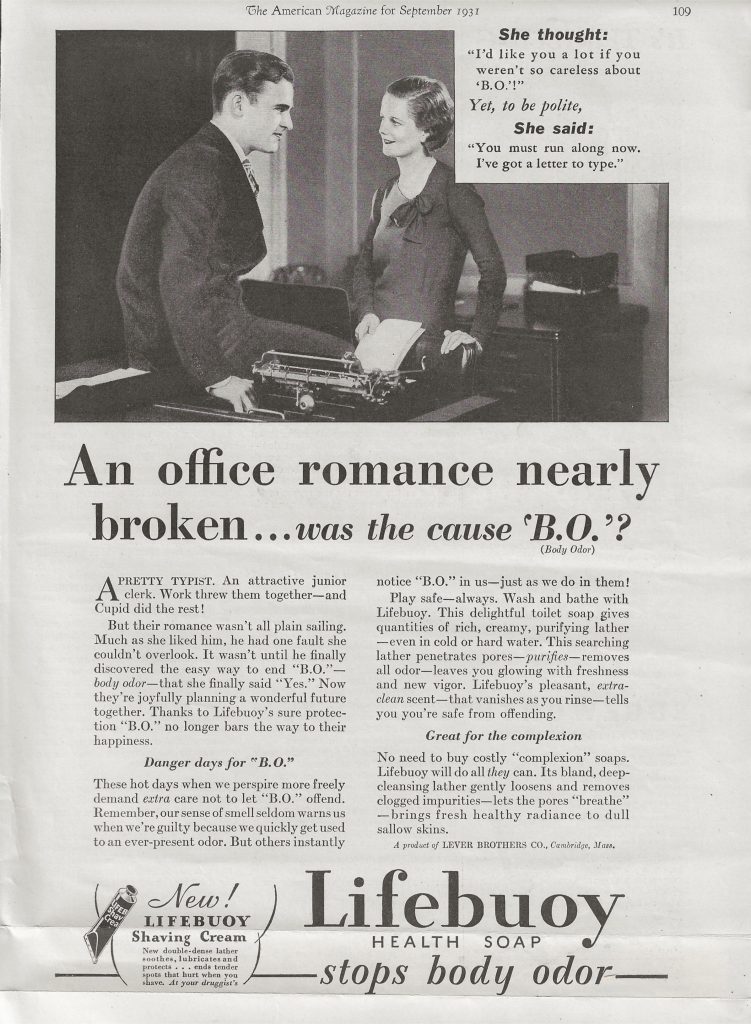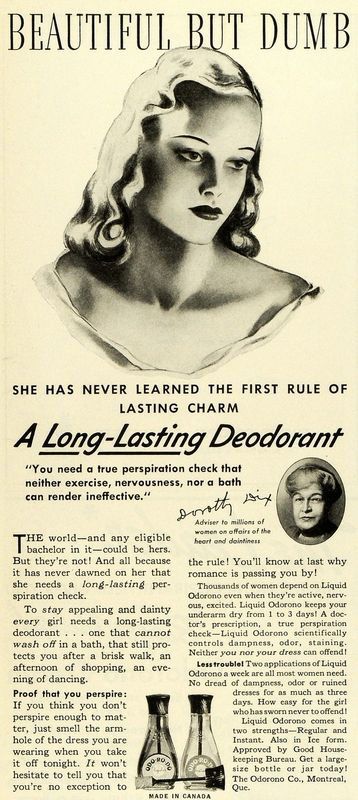It’s a typical day at the office in 1931. An attractive junior clerk leans on the desk of a pretty young typist and pitches woo. But Cupid is no match for a bad case of B.O. Fortunately, he soon discovers his salvation in the form of LifeBuoy soap from Lever. Freshly washed and free from offending, the suitor and his lover begin planning their wonderful future together.
This ad for LifeBuoy soap (from the Lever corporation) appeared in the September 1931 issue of The American Magazine.

Marketing Body Odor
In 1888, the first underarm odor cream came onto the market. It was known as “Mum”, as in mum’s the word or a well-kept secret. The waxy cream worked by killing odor-causing bacteria, but it was uncomfortable to apply and left an oily residue behind. Then, in 1903, Everdry introduced a sweat-blocking antiperspirant, but the formula was highly acidic, damaging clothes and stinging the skin.
In Victorian America, if anyone had even heard of antiperspirant, they either believed it was unnecessary or unhealthy. Most people took care of their armpits by wearing cotton or rubber pads (known as dress shields) beneath their clothing to absorb sweat. But things were soon about to change.
In 1912, a Cincinnati doctor invented an antiperspirant for the purpose of keeping his hands sweat-free during surgery. His high-school-aged daughter, Edna Murphey, hired an ad agency to sell the product under the name “Odorono”. The brand was the first to truly capitalize on the embarrassing problem of excessive perspiration and body odor, which they dubbed “B.O.” Once the company had convinced women that they were unwittingly offending their friends and lovers, sales for the hygiene product took off. All this despite the fact that Odorono was also highly acidic and stained clothes red, yet marketing the fear of utter humiliation was enough to overcome the downsides.

By the 1930s, deodorant companies realized they’d already won over the female customer base and began targeting their campaigns to men. The anti-B.O. movement also included “medicinal soaps” like the popular LifeBuoy brand seen advertised to our male suitor in the first ad above.
